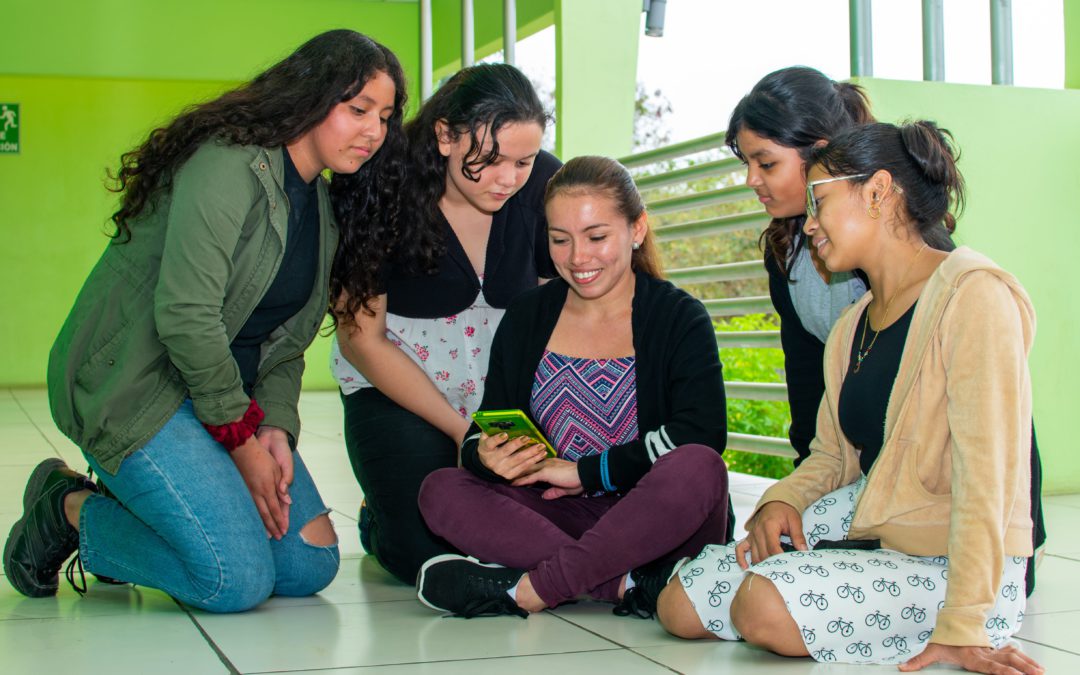Social Media and Adolescence.
“Being on the phone all the time isn’t necessarily a bad thing.
There are many good and bad things on the internet.
Parents should make sure their children don’t get absorbed by the bad things…” (Roberto, 17 years old)
“Adults have always worried about young people and technology… since the era of radio in 1925”
(Teens, Screens, & Wellbeing: Youth in the Digital Age)
Listening to a group of young people when asked about digital social networks, they don’t hesitate to mention both their negative effects and the benefits they have found in this type of socialization. From group pressure to look or act in a certain way; to communities that share their interests, tutorials to learn new things, virtual friends who understand them, among many others.
The barriers that adults previously clearly differentiated between the “real world” (here and now, face to face) and the “virtual world” (which occurred on the Internet and was not of great importance), have been fading away with generational change.
Generational clashes have always existed and will persist in human history, but never has a generation been so different from previous ones. Generation Z is the first to be born with access to technology and the internet. Although, this doesn’t mean that there isn’t a considerable gap, especially in Latin America.
Take for example a teenager who spends the whole weekend at home, but without interacting with their family and playing video games most of the time. When asked what he did over the weekend, he will say: “hanging out” with friends. And that’s true. Virtuality is a new palpable and tangible reality for the new generations.
That’s why the new civic education also emphasizes rules of coexistence in this new world, where there are also rights and responsibilities and the repercussions of verbal abuse, harassment, slander, are just as serious and painful. Even beauty standards; strong opinions on a topic; sharing which events one participates in; generate a very strong level of stress and anxiety, perhaps never seen before.
When it comes to social networks, caregivers must be aware that:

- Their role doesn’t end “in real life” but includes deciding when and what types of electronic devices to provide; how to control internet access; getting to know the “virtual friends”; knowing the content of video games and others. Leaving a minor alone with a cell phone is like leaving them on the street without supervision.
- Regulating the time spent on screens is important. We are all new to this, even adults. That’s why it’s important to remember that there are other things we can do without screens like eating, exercising, going outdoors…
- Teaching critical and analytical thinking is vital. Fake news, opinions without scientific basis, sensationalism… are commonplace. Learning to analyze what the source is, contrasting information, discussing it with other people to know their opinions, is always vital. In a sea of information like the one we live in, learning to select the sites we visit and choose – for their scientific basis and their affinity with their own values – is very important.


Cell phones or social networks are not the enemy to be defeated. Technology is usually an amplifier of the challenges and opportunities of adolescence and youth. That’s why it’s important to build a foundation of closeness and trust with them, so they can ask questions or express doubts or uncertainties in their world (physical and virtual).
It’s possible that, as parents, often we feel like we’re in an endless race, falling behind our teenage children. New apps, new games, new networks appear every day… We can’t research and know them all, but we can be vigilant, talk, and set limits. Let’s give our teenagers a voice and continually discuss digital well-being. It’s never too late or too early to do so.
Adriana Gómez
Mom of Juan Pablo (16) and Gabriel (13)
Executive Director
